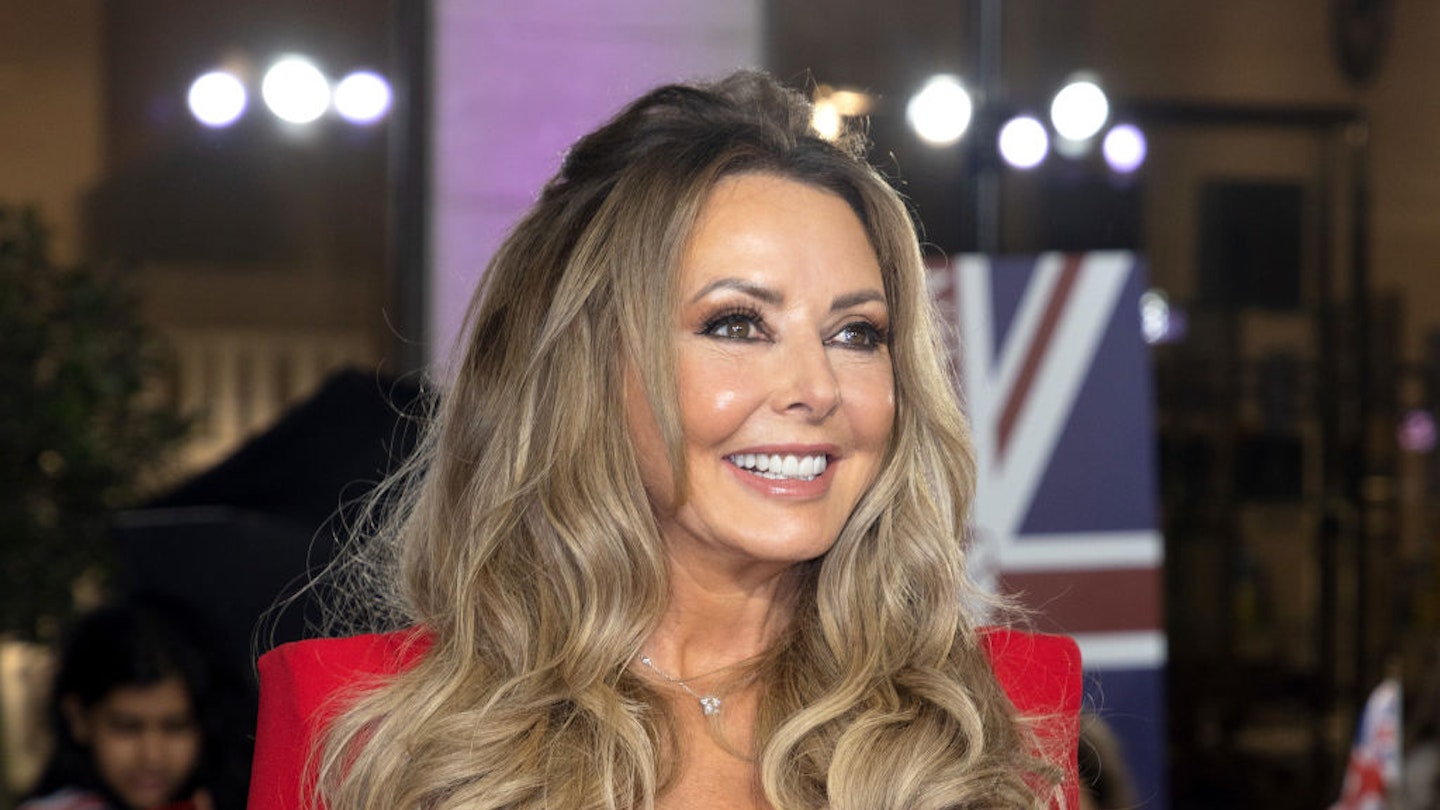I’m A Celebrity: South Africa continues its all-star series this week with the addition of Carol Vorderman, returning eight years after her first stint on the show. With viewers locked into the new reality series, set in Kruger National Park, social media is awash with commentary about the latest celebrities to re-enter the jungle.
But the biggest controversy so far, according to viewers on social media? Carol Vorderman’s age. Twitter erupted into shock and awe last night after finding out that the TV personality is 62. Now, the shock and awe are because she looks INCREDIBLE, so it’s complimentary for Carol– but it begs a deeper question, what did people really expect?
Carol looks great, that much is true, but the way viewers are talking about her age you’d think their image of a woman in her early 60s is that of someone bed-bound, tits to the floor, shrivelled up as though they’ve been in the bath for weeks on end. In actual fact, women in their 60s are not decrepit skeletons waiting for death, just ask the ever-gorgeous Lorraine Kelly (63), Ruth Langsford (63) and Fiona Phillips (62).
It's a discourse that’s goes way beyond women over 60, even the most youthful Hollywood celebrities are served up as examples of ‘ageing like fine wine’ despite barely breaking 30. Take Taylor Swift for example, she’s consistently used as an example of someone who is ageing really well, yet she’s literally 33 years old. Kristen Stewart has too fallen foul to the ‘ageing like fine wine’ commentary, also only 33, as has Selena Gomez who is 30.
It seems as though our perceptions of ageing, and in particular beauty expectations at each age, are entirely warped. But why? How did we get to the point where a woman can hit 35 and people comment on her beauty as though they’re talking about their great grandmother?
Perhaps it’s all down to the beauty industry, advertising ‘age-defying’ products with scaremonger tactics that capitalise on women’s fears about getting older, convincing us we’ll prune by 30. Or perhaps it’s personal insecurity, many of us spiralling after that first appearance of a fine line or grey hair, noting the value youth holds in our society be that socially, in dating or even at work. Either way, we need to get real about how women really age – because appearance changes at 30, 40, 50 and beyond are not as drastic as we’re being led to believe.
Of course, none of this is to say it’s bad to age quickly (or rather, like cheap wine?) but that is what the supposed compliment of ‘ageing like fine wine’ really implies, isn’t it? In fact, it’s not really a compliment at all, because all it does is instil further fear that were a certain celebrity to show signs of ageing, they would no longer be held up as a beacon of beauty and grace.
‘Ageing well’ is actually quite backhanded, and while probably meant with good intentions, it shouldn’t hold any value at all in a world where there’s already so much stigma and fear around ageing. We all need a more realistic understanding of how a woman looks at every milestone age, but we also need to move away from the idea that it holds any inherent value to ‘still’ look good at each age. We should be able to embrace wrinkles, sagging skin, and grey hair because more than anything, it’s a privilege to be able to live long enough to develop them.
